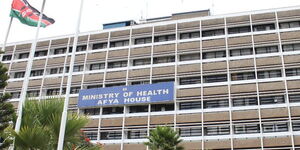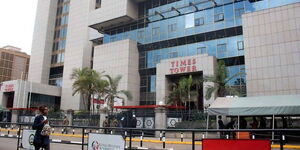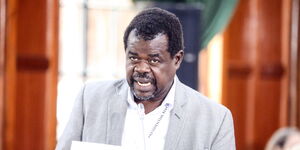Mining Cabinet Secretary Ali Hassan Joho has confirmed the discovery of gold in Kakamega, assuring that Kenya and the local community will benefit.
Speaking on Citizen TV on Thursday, November 13, Joho revealed that reports of the gold, valued at approximately Ksh680 billion, were true, noting that the actual worth of the gold could be higher.
CS Joho further informed that a British company had already identified the exact area where the gold is said to be located and was about to start mining at the site.
The discovery was made within the Lirhanda Corridor, a 1,200-kilometer mineral belt running through Kakamega and Vihiga counties, following years of intensive exploration and drilling.
As per Joho, the firm has already pitched to the government on how it plans to mine the gold, adding that it had committed Ksh26.8 billion to develop the mine and processing plant, a move that could make the Lirhanda project Kenya’s first large-scale underground gold operation.
The CS disclosed that revenues from the gold will be proportionally distributed amongst the national government, the county government, and the local community.
Joho disclosed that revenues earned will be in the form of levies, royalties, and taxes. For instance, three per cent of the gross total value of the gold would go into royalties, five per cent would be an export levy, one per cent of the gross total value of the gold would be reserved for the community, and 10 per cent of the asset would be given to the government on a free-carrying basis.
The local community would also benefit from employment opportunities and training, with the economy growing from direct investment from the firm.
Explaining why a foreign firm was behind the mining and processing, Joho expressed that the depths of the gold necessitated advanced technology and know-how, which Kenya did not possess.
“The gold discovered was over one kilometer deep into the earth’s surface. Surely, you and I as common mwananchi do not have the capacity to go there and start mining. We do not have that level of technology and expertise, so we will require the services of the foreign firm,” Joho said.
Also, Joho referenced Kenya’s mineral development, noting that the country lagged as compared to its counterparts in the East African region and would thus need a foreign push to make it realise its mining goals.
Still, Joho assured that artisanal miners would not be displaced, revealing that their own area for mining would be demarcated.
Another issue addressed by Joho was the displacement of locals, with the CS assuring that any displacements would follow the proper processes and that adequate compensation would be guaranteed.
Joho’s remarks came amid uncertainty among locals and Kenyans over the involvement of a foreign company in the mining of the nation’s natural assets, with the general feeling being that the British company’s presence would limit the country’s potential benefits from the gold.












